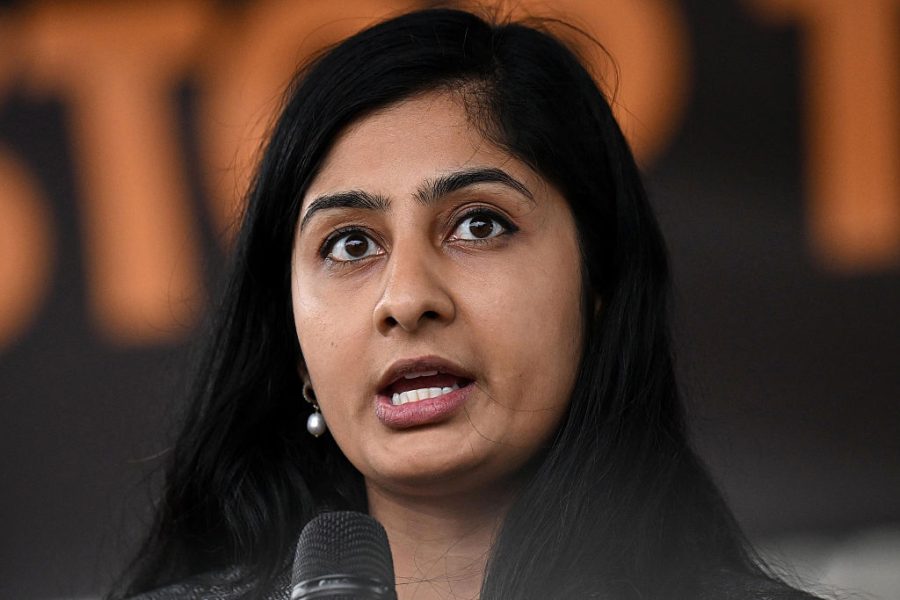The NHS is swallowing more money than ever, yet delivering worse results. Now its failings are not only hurting patients, but also weighing down the economy. Employment in healthcare, said the Bank of England in last week’s Monetary Policy Report, has surged since 2019, while productivity has dropped. The Bank downgraded its 2025 growth forecast for the country from 1.5 per cent to 0.75 per cent, blaming the public sector – which has ballooned in size and shrunk in effectiveness – and healthcare in particular.
After thirty years working in medicine, I’m not surprised. I have seen a few genuine improvements, but I have also seen the NHS become far more bloated and less efficient. In hospitals, more doctors – and, in particular, more senior ones – look after fewer patients. Most of the NHS’s budget is spent on staffing, and some of this extra spend has brought worthwhile benefits. Much, however, has not, and reliable data to tell the difference neither exists, nor has ever been seriously sought. The tactic has been to spend, and the strategy has been to hope. Whether you’re a believer in the NHS or a sceptic, it’s clear that the results aren’t good enough.
General practice, with its valuable tradition of continuity-of-care, has collapsed. Changes to medical training under the banner of making things quicker and more flexible have made them slower and more rigid. Rewards for talent and effort have been stripped away; competing for training posts on the basis of performance was reduced, first to an essay competition, now to a lottery.
Electronic systems brought in to replace paper records have slowed us down. Where ward rounds once began with grabbing paper folders (or hunting for them), now they start with fights to secure half-working computers, followed by juniors demanding time to ‘prep the notes’ – a task that simply wasn’t needed before the inefficiencies of the electronic systems were introduced. Electronic records provide a wealth of data-driven opportunities, but they were not introduced because those benefits were needed, so solutions of vast expense have been purchased for problems that did not exist. That’s hardly an efficient way to run a healthcare service.
Physician assistants and specialist nurses are everywhere, highly trained staff recruited to do some of the work previously only done by doctors. Lots are excellent, most are useful, and many – but far from all – are cheaper than doctors. But none actually are though, and their recruitment has not stopped the number of doctors from rising. The NHS has no idea what sort of staffing is most effective. With no way of measuring the cost-effectiveness of expansion, and no means of creative destruction when it needs to happen, all growth is a ratchet.
Quality audits are done virtually as hobbies, and the NHS has almost as little idea of what it actually does as of what it should be doing. We don’t know who or what provides value for money; we barely know what value for money might look like. The NHS will always get answers about productivity wrong when it fails even to start with the right questions.
In the post-war years, it seemed for a brief period that the government was well-suited to run huge enterprises like the NHS. The idea retains a well-intentioned nobility that has almost everything to recommend it save for a track record of being true. The NHS is not the envy of the world, and the fact that other countries do better suggests the faults lie not in our stars.
When he became prime minister in 1990, John Major took over a country spending 5 per cent of its wealth on healthcare and saw it rise to 7 per cent. Tony Blair, in what became known as the most expensive breakfast in history, told the journalist David Frost one morning that he planned to increase NHS spending to the European average of 9 per cent.
Blair’s announcement was dramatic, but the rise he oversaw was the same as Major’s – 2 per cent; the same, too, as our current defence budget. Today, healthcare consumes 11 per cent of our wealth. Spending has risen, but productivity and outcomes haven’t kept pace. International league tables show our performance is poor and getting worse.
Healthcare costs will keep rising as medicine advances. The innovations of capitalism are good for us, but they also mean that the problems we have today will only grow worse tomorrow. Some want the NHS replaced, others defend it like Holy Writ. I suspect an agnostic majority, prizing health more than ideology, want whatever works best. Our current system performs so badly that it is undermining both our health and now also our economy. The NHS is failing partly because it habitually spends more without knowing how – or whether – doing so actually helps. Whatever our views and our ideologies, understanding the frailties and failings of our healthcare system, and its potential for improvement, should be common ground.







Comments